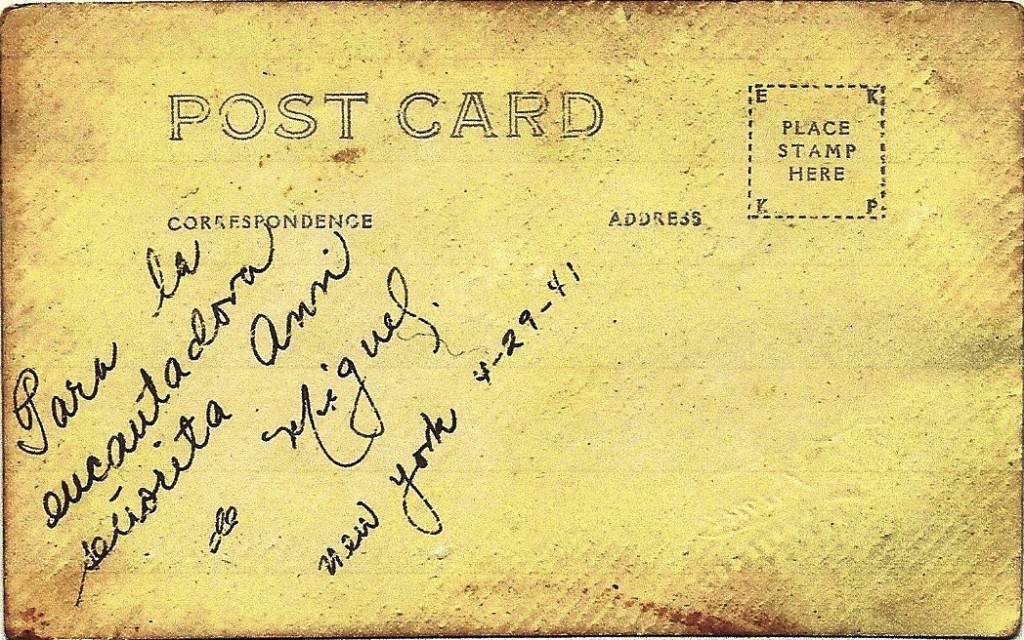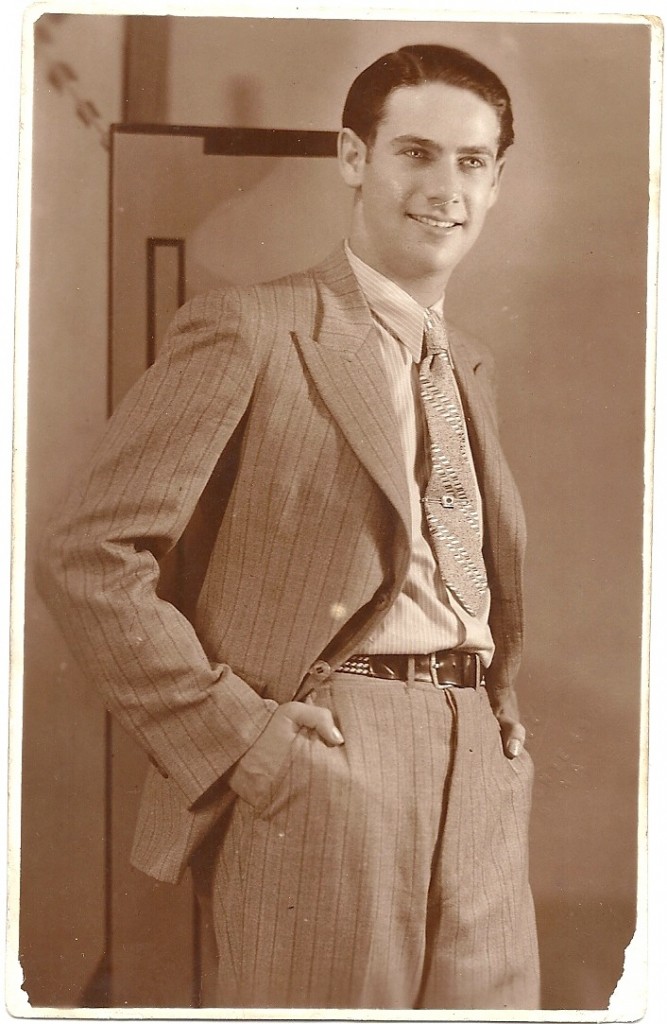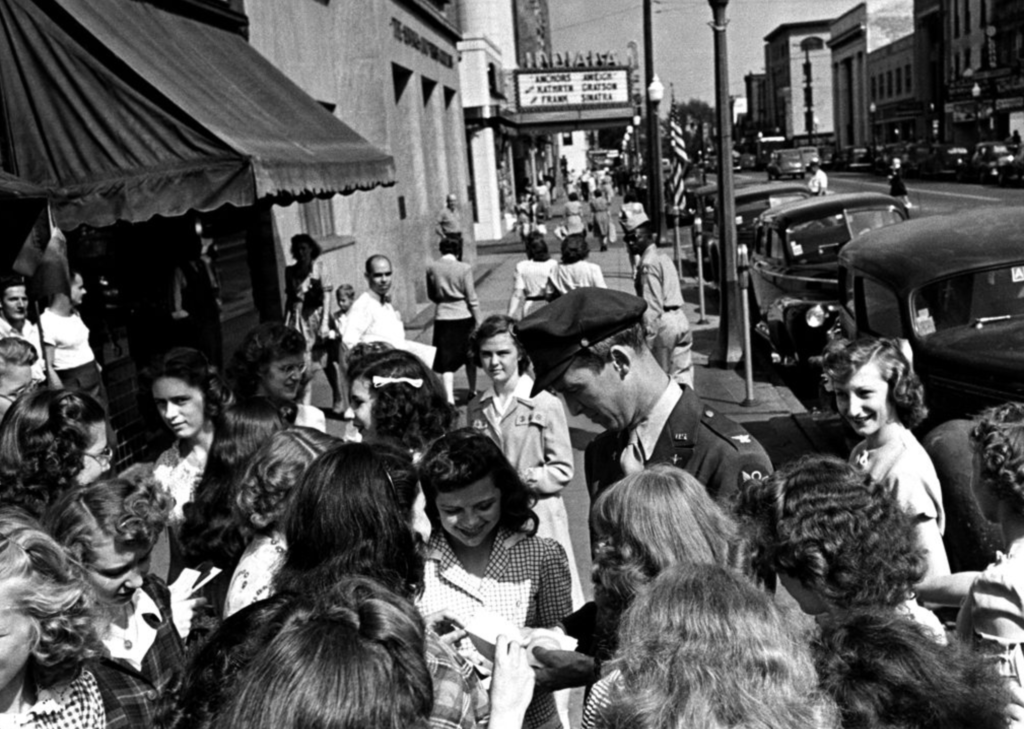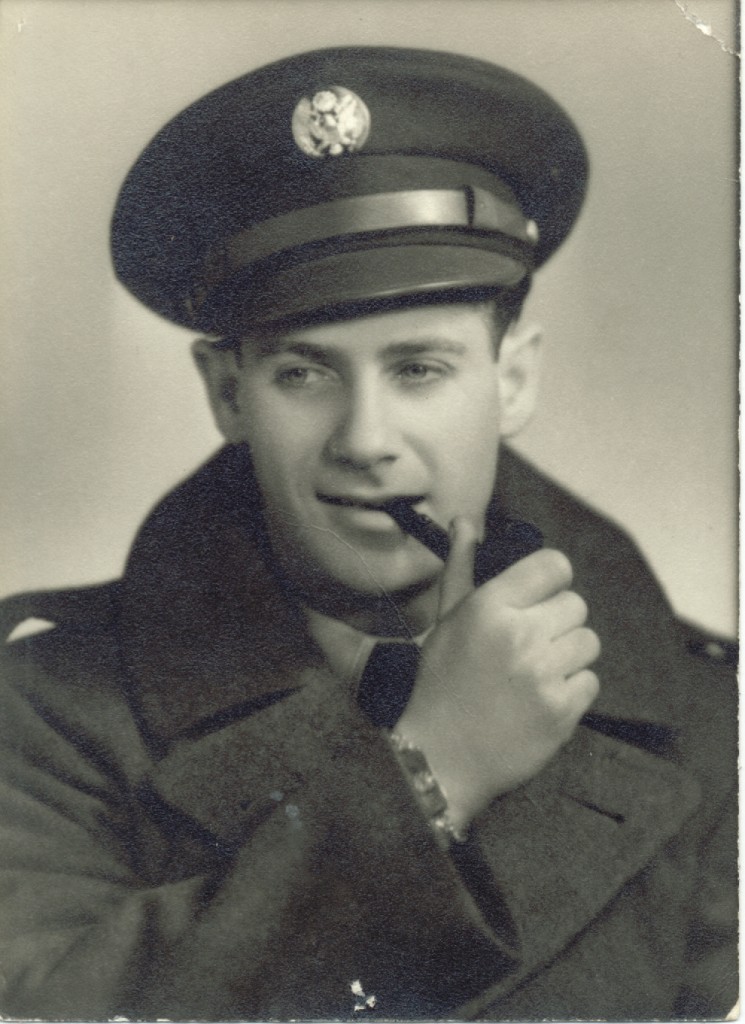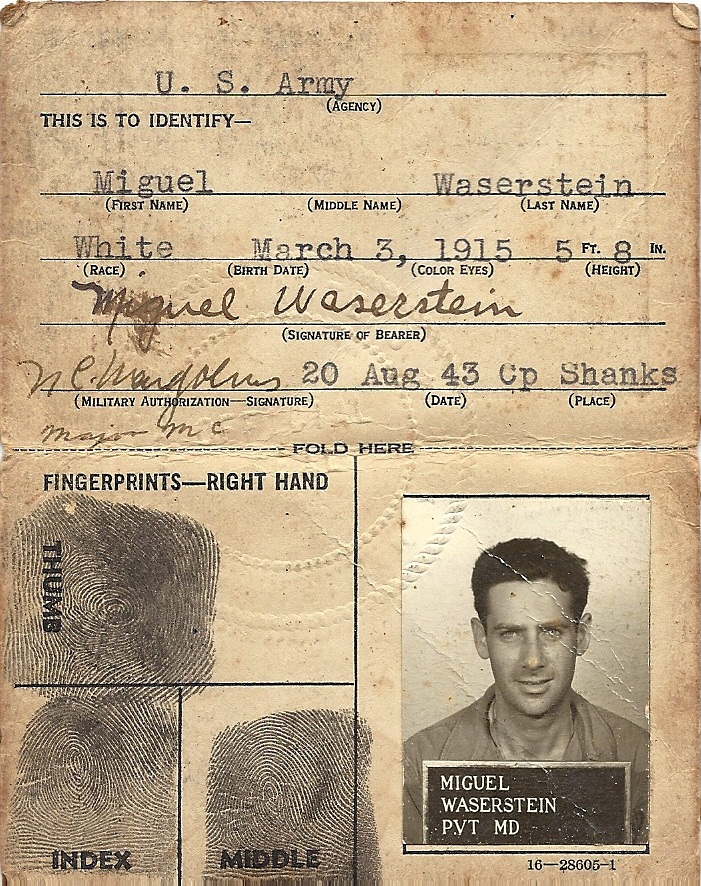 Miguel signed up for the military at the Local Board of the Selective Service on Nostrand Avenue in Brooklyn, and soon received a postcard in the mail, addressed to “Miguel Wasserstein, Class 1A-available for unrestricted service.” They list his year of birth as 1915, though Miguel claimed he was born in 1913.
Miguel signed up for the military at the Local Board of the Selective Service on Nostrand Avenue in Brooklyn, and soon received a postcard in the mail, addressed to “Miguel Wasserstein, Class 1A-available for unrestricted service.” They list his year of birth as 1915, though Miguel claimed he was born in 1913.
Chapter 06
Chapter 6 – 1: “A 1940s Postcard”
Chapter 6 – 5: “On Account of Jimmy Stewart”
“By means of the military, Miguel could demonstrate his manly virility, and his eligibility as an American; the uniform would at once entice the girls and display his allegiance. He longed to be a part of a war effort that would also create his “path to citizenship.”
MW = Michael Waterston, AW = Alisse Waterston, author.”
Chapter 6 – 7: “Miguel, his Buddy and the Girls, World War II”
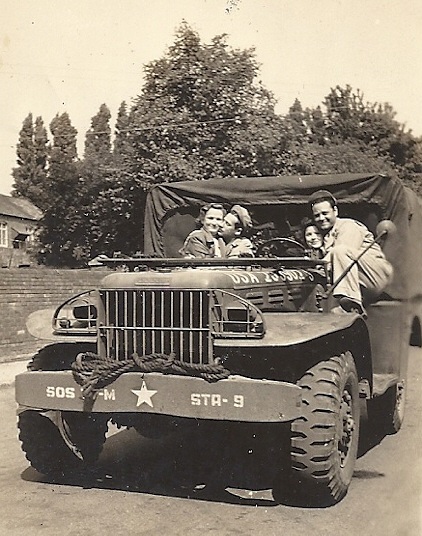 My father’s war stories are light-hearted, almost carefree. They are devoid of the horrors of war; instead, they center on flirtations, friendships, and small adventures, a surprising choice considering the time and the place for them. He does not mention the dead though they number between 65 and 75 million during World War II.
My father’s war stories are light-hearted, almost carefree. They are devoid of the horrors of war; instead, they center on flirtations, friendships, and small adventures, a surprising choice considering the time and the place for them. He does not mention the dead though they number between 65 and 75 million during World War II.
